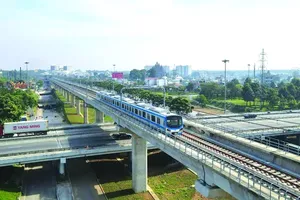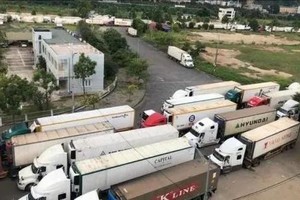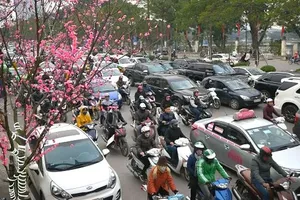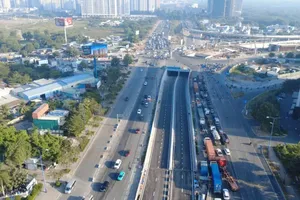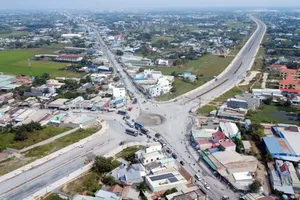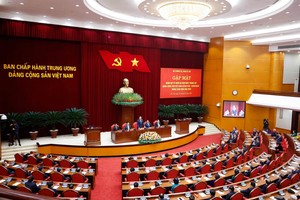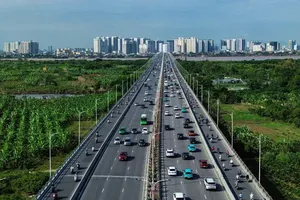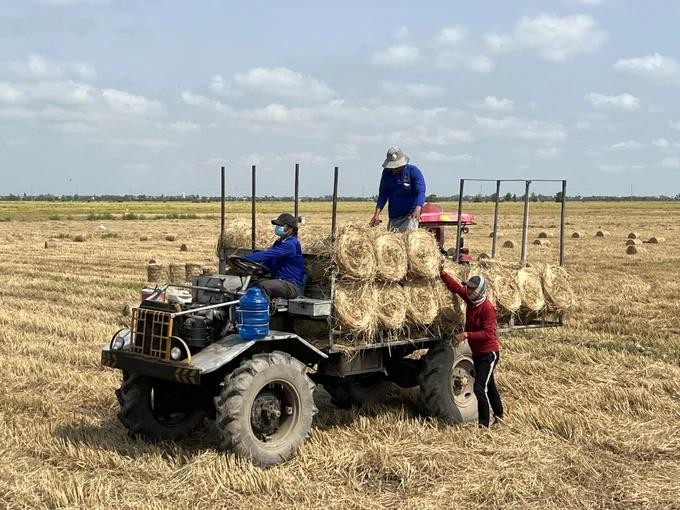
According to the Ministry of Agriculture and Rural Development, approximately 8.8 million tons of food are discarded annually in the country. The Food and Agriculture Organization of the United Nations estimates that the economic loss due to food waste in Vietnam amounts to around US$1.3 million each year. Furthermore, waste is also present in refuse bins.
A report from the International Finance Corporation and the World Bank suggests that Vietnam incurs a loss of nearly $3 billion annually due to the failure to recycle all plastic waste generated in daily activities. In terms of organic waste, it is estimated that over $30 billion is lost each year, with nearly 70 percent of this waste not being recycled.
Residents of large cities today waste time, money, and fuel due to traffic jams. According to the Ho Chi Minh City Department of Transport, each year the city has nearly 5,000 traffic jams, causing damage of about VND140,000 billion. In Hanoi, the results of some studies show that traffic jams cause damage of $1 billion-$1.2 billion a year.
In the workplace, numerous businesses are squandering resources because of the presence of 'office zombies' - employees who lack dedication, work excessively, fail to enhance their productivity, yet remain in their positions. As per a survey by Anphabe Company spanning from 2016 to 2023, many businesses in Vietnam are experiencing a decline in the number of committed and loyal employees.
Consequently, 45 percent of the respondents displayed strong disengagement and indifference towards the business, leading to voluntary contribution levels of only about 11 percent and 53 percent.
For businesses, the encounter with complex administrative processes not only leads to resource wastage but also poses the risk of substantial financial losses due to investment errors, potentially amounting to thousands of billions of Vietnamese dong in a short time.
A notable instance of investment inefficiency is illustrated by the E5 biofuel production facilities in the Northern Province of Phu Tho with an investment of VND1,500 billion, the Southern Province of Binh Phuoc with VND1,600 billion and the Dung Quat economic zone in the Central Province of Quang Ngai VND2,200 billion. All three of these plants have remained inactive for several years, primarily due to the insufficient demand for E5 gasoline.
Furthermore, businesses show little interest in trading E5 gasoline, particularly when they are required to sell it within a week, as prolonged storage diminishes the fuel's quality. In April 2024, the Government presented findings on anti-waste initiatives from 2023, highlighting that several enterprises and projects with significant state investment were incurring losses, operating ineffectively, and lagging behind their schedules.
Notably, the Nghi Son Refinery and Petrochemical Company Limited invested over $9 billion in the Nghi Son Refinery and Petrochemical Plant project, which commenced operations at the end of 2018 but suffered a loss of VND61,200 billion within just three years.
In April 2024, the Government released a report on the outcomes of anti-waste efforts in 2023, revealing that numerous businesses and state-funded projects were experiencing financial losses, inefficient operations, and delays.
Nghi Son Refinery and Petrochemical Company Limited invested over $9 billion in the Nghi Son Refinery and Petrochemical Plant project. Despite being operational at the end of 2018, the plant incurred a loss of VND61,200 billion within just 3 years.
Additionally, the Ministry of Construction has recently announced that in the first half of 2024, Vietnam Cement Corporation suffered a loss of VND863 billion, which translates to a daily deficit of more than VND4.7 billion.
The Ministry of Construction has recently announced that in the first half of 2024, Vietnam Cement Corporation experienced a loss of VND863 billion, amounting to a daily negative of over VND4.7 billion.
As per several experts, companies with a significant share of state capital are heavily regulated in terms of state capital management, leading to a lack of initiative and adaptability in their production and business decisions. The failure of these companies to promptly devise robust and innovative strategies has resulted in missed market opportunities.
It's a common occurrence in the private enterprise sector to miss out on opportunities, which leads to wasted market potential. Vietnam has signed 16 free trade agreements (FTAs) to boost the export turnover of goods. However, numerous enterprises are unaware of these FTAs, and even if they are aware, they fail to take advantage of FTAs for market expansion.




